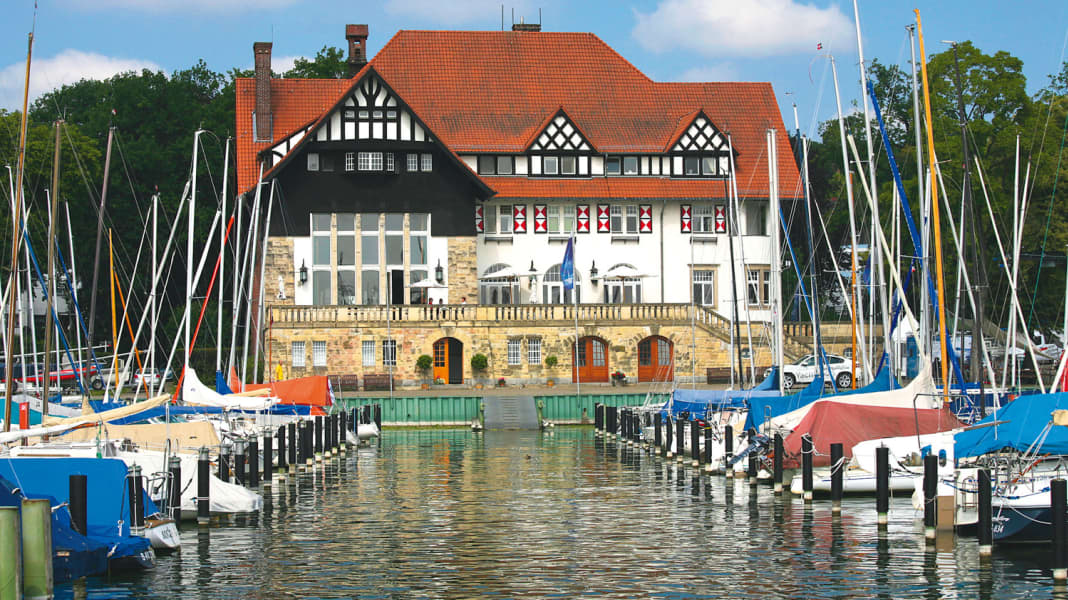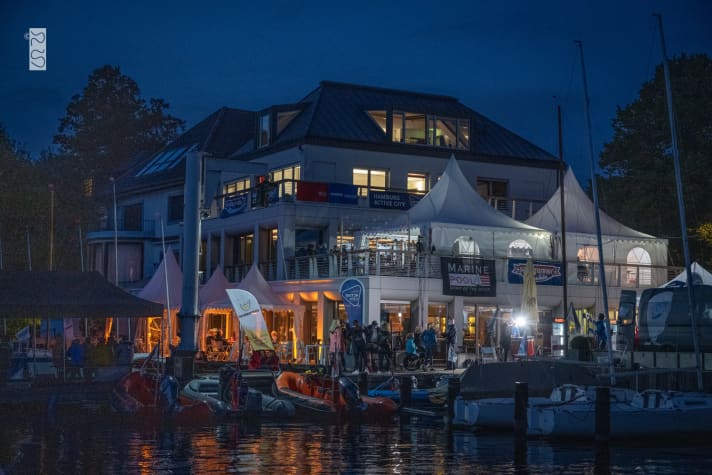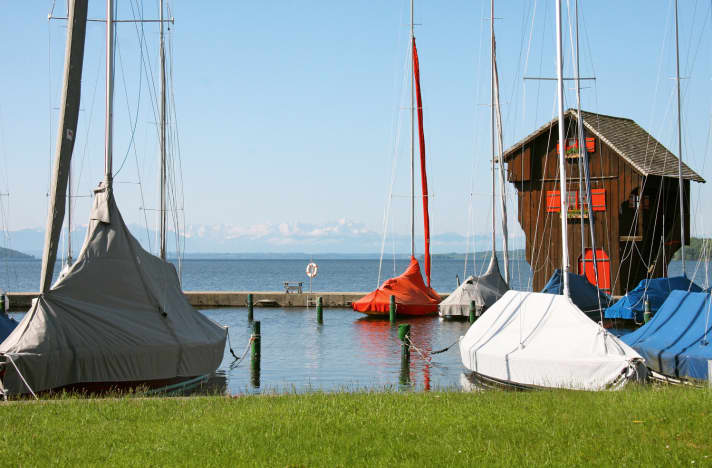
The rapidly rising prices are also making themselves felt at the sailing clubs: At the traditional Berlin club Seglerhaus am Wannsee (VSaW), for example, the cost of gas has just tripled. What recently cost 18,000 euros will cost 70,000 euros in future. "We don't yet know how we're going to cope," says Managing Director Frank Butzmann, even though he doesn't believe the organisation's existence is yet under threat.
But by February, the VSaW may only be running "in emergency mode" - seminars, training sessions and the shipyard operations would then be cancelled. The huge clubhouse dates back to imperial times and is a listed building, so solar power, insulation or heat pumps are out of the question. And the lighting was switched to LEDs years ago, says Butzmann.
Step-by-step plan of the DSV
Sailing clubs are to save 20 per cent on energy in the coming months "in order to avoid blanket closures of sports facilities". This has been decided by the executive committee of the German Sailing Association (DSV) and is also stated in an appeal from the German Olympic Sports Confederation to its more than 1,200 member clubs. There is a long step-by-step plan to help club managers save energy.
Among other things, it recommends "lowering the room temperature" and "critically checking all electronic devices for consumption and operating time", as well as all kinds of short and long-term measures that are now being recommended everywhere. "Of course, we will also reduce gas and electricity consumption at the DSV in the near future," says its President Mona Küppers. Thermal insulation and LED lighting will help, as will motion detectors for lights and the elimination of standby mode for electrical appliances. The possibility of a solar system on the roof is also being examined. Küppers is also calling for "tangible financial support" from politicians. "It is incomprehensible that the associations have not been included in the German government's third relief package," says Küppers.
How the sailing clubs want to save energy
Many sailing clubs that YACHT spoke to are now looking for ways to reduce their energy consumption. The Norddeutscher Regatta Verein (NRV) in Hamburg is already saving electricity everywhere, for example with the lighting on the jetty, the lighting in the catering area and the cooling in the kitchen. In August, ten per cent was already saved compared to the previous month. "You have to budget well," says David Heitzig, the club manager responsible for the NRV's finances. Despite the many cost-cutting measures, "the club's financial buffer is now slowly being used up," says Heitzig.
No savings are currently being made on the association's services, everything is still taking place, even though gas has become 40 per cent more expensive and electricity even 50 per cent more expensive. At the same time, the motorboats on the Alster are being converted to electric propulsion in the interests of sustainability, which in turn is driving up electricity consumption. However, in order to negotiate better conditions for energy contracts, the NRV has been a member of a purchasing association since 2021, which includes small companies as well as other associations. A photovoltaic system on the roof has already been considered - but has not yet been approved at the Alster. That is currently changing, says Heitzig.

No restriction on offers
The Bavarian Yacht Club on Lake Starnberg is already further along in this respect, says Chairman Manfred Steiner. A photovoltaic system is already being planned there, which is due to go into operation in 2024. "We don't want to restrict the facilities in any way," but some buildings will not be used in winter. "We are currently analysing: where can we save energy?" says Steiner - but he considers the 20 percent specified by the DSV to be "realistic".

The situation is different for small clubs such as the Motzen water sports club on the Weser, which has around 120 members. "It hasn't been that relevant for us yet," says Chairman Holger Stockfleth. However, this is also due to the fact that the clubhouse, which is located directly on the river, has been deserted for some time - club life there has already suffered greatly during the coronavirus pandemic.

